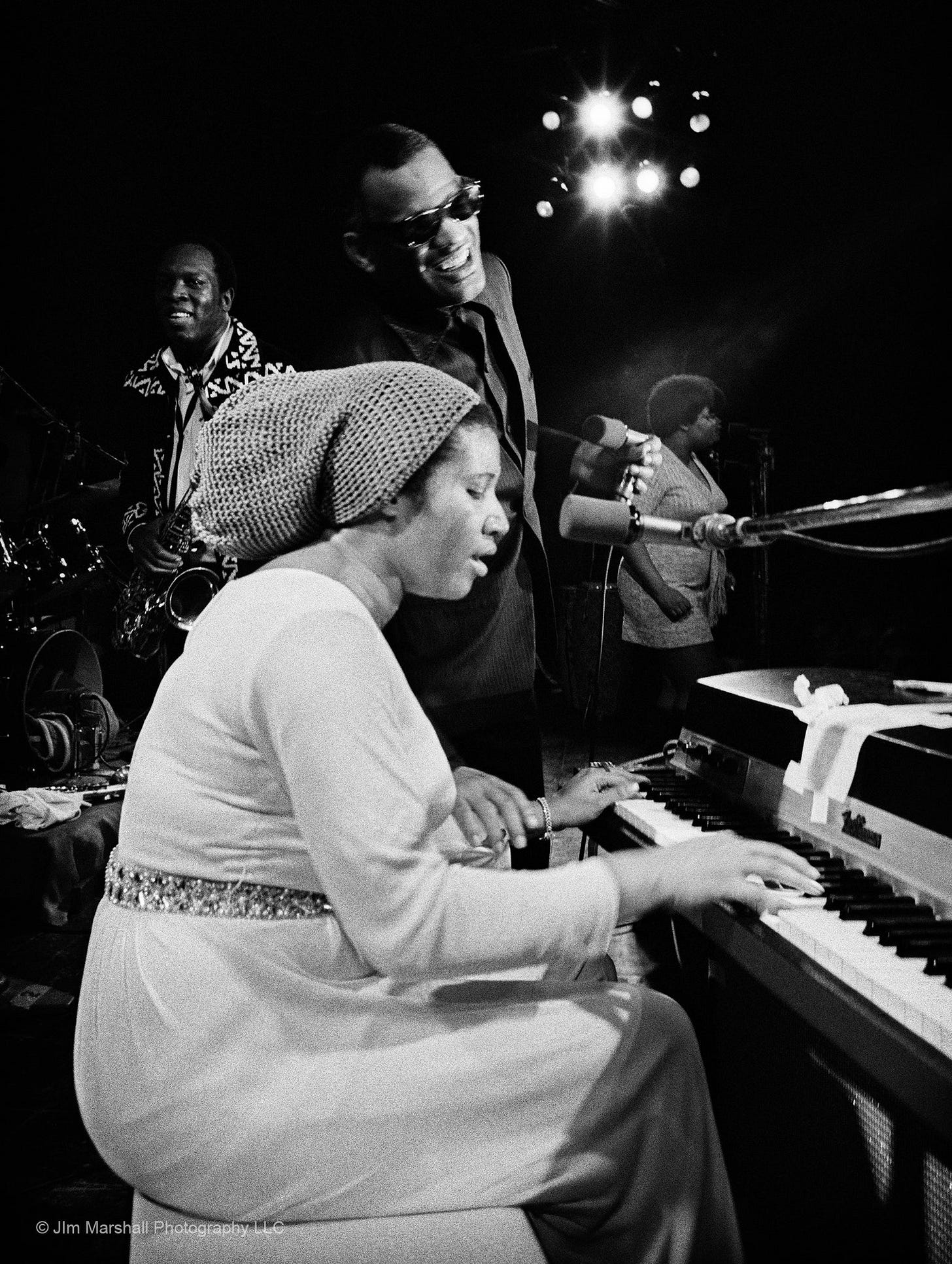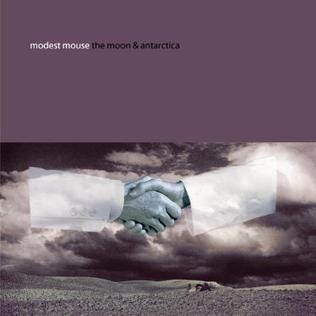The power and rarity of a good cover song
Inspired by Sun Kil Moon's imaginative takes on Modest Mouse
I’m not a big fan of cover songs because they usually fail in one of two ways:
Staying too faithful to the original — why not just go listen to the original?
Departing too dramatically to the point that it feels unmoored from the underlying song.
It’s hard to find that sweet spot where the artist either (1) is Fresh but Faithful to the original or (2) pulls off a Deep Departure that still feels connected to the lyrics or sentiment of the original (or subverts it in interesting ways that still feel earned).
Most famous covers are in the Deep Departure category: “All Along the Watchtower” (Jimi Hendrix), “Hurt” (Johnny Cash), “Hallelujah” (Jeff Buckley). They create such fresh versions of the songs that they stand on their own and many listeners don’t even know that they’re covers.
The Faithful but Fresh category is generally less notable, but some of my favorites include Lee Fields’s “Magnolia” (JJ Cale cover) and plenty of early Beatles and Rolling Stones rock n’ roll covers. I couldn’t decide which category to put The Clash’s “I Fought the Law” in…
Aretha Franklin deserves a special nod as one of the great covers artists of all time in both categories. Her prime Atlantic albums integrate material by everyone from Burt Bacharach to The Beatles, Steven Stills to Stax hitmakers. The Muscle Shoals sound makes it all cohere and still feel true to Aretha’s gospel roots.

The Grate-American Songbook
The Grateful Dead deserve credit here, too. Amidst their famous live show with its jams, spacey breaks, and Wall of Sound, they wove a sprawling multi-decade web of covers. Check out this comprehensive overview, scroll to the bottom for the list.
The Dead are so associated with hippiedom and jamming that this part of their brilliance is often overlooked. The only major musician who surpassed them in their ability to throw the high and low of American music history into a blender and spit out strange and unexpected work is Bob Dylan. Their repertoire included lots of traditional folk songs (including “I Know You Rider,” which they truly made their own), blues and early rock and roll legends (Howlin Wolf, Muddy Waters, etc.), contemporary rock legends (Bob Dylan, Rolling Stones), soul music (Wilson Pickett, Marvin Gaye), and more. It’s a peek under the hood. Like Bob Dylan on The Basement Tapes, they were also able to write some of their own Americana takes like “Cumberland Blues” that sound like they must be covers.
I’ll pick one obscure example, shout out to Aquarium Drunkard. They turned me on to a Jesse Winchester cover from Jerry Garcia’s side project Legion of Mary, which starts here at 33:52 (video below). The song is called “Every Word You Say” and Garcia plays it as a languid ballad with a sweet chorus and refrain. Jerry’s guitar soars over a bed of saxophone and organ.
I had never heard the tune before, so I checked and found the original version. Where Jerry’s version explores every nook and cranny for 10 minutes, Winchester’s comes in under two minutes. The original is a pretty straightforward and sweet love song, but Garcia slows the pace and lends an air of melancholy, perhaps unrequited love, to the tune.
It reminds me of how Neil Young slowed down Don Gibson’s galloping “Oh Lonesome Me” to a weary depression. In that song Young unearths the sad lyrics underneath the honky tonk trot and has them guide the arrangement.
Garcia's interpretation is even more creative and parallels the work the Dead did for decades re-interpreting their own songs and interweaving them with their own Great Cosmic American songbook.
The sloppy live cover
The one area where I wish artists did more faithful or sloppy covers was in live shows. It’s a fun way to provide something unique about the live experience, work in a fun surprise, and let the audience in on your influences. Waxahatchee, for example, has been touring and rotating through Lucinda Williams covers. When I saw her in Los Angeles, she played “Something About What Happens When We Talk,” she also popped out at an MJ Lenderman show in October with her sister and they traded verses on “Drunken Angel.” Looks like both of those ended up on YouTube:
While these kind of covers don’t need studio recordings, they can be the most memorable part of a live show. In 2019 I saw a great Titus Andronicus show that spanned their catalog, but when the show comes up I always talk about how they had opener Ted Leo return for an encore performance of Springsteen’s “Dancing in the Dark.”
The Sun Kil Moon & Antarctica
What prompted this whole cover exploration was re-encountering Sun Kil Moon’s Tiny Cities, an album of Modest Mouse covers by Mark Kozelek.
Modest Mouse are one of my favorite bands of all time and their songs typically have unexpected bridges and codas, rolling-tom-tom-filled back beats, and sloppily dramatic guitar bends (all of these are compliments, I am sad that they stripped the unhinged bends out of their sound as they became more polished). It’s notable that Kozelek’s album was recorded right after Modest Mouse had their monster crossover hit with “Float On,” but it’s mostly older material from the ‘90s. Kozelek’s clearly a real head.
Years ago I remember giving this album a quick and cursory listen and thinking “why would you strip all the dynamism out of these songs?” Essentially, it felt like the Iron & Wine cover of The Postal Service’s “Such Great Heights” but for an entire album. At that time I had an aversion to the “merely” pretty and craved the dynamic highs and lows of early Modest Mouse like “Teeth Like Gods Shoeshine.”
But what Kozelek is doing here is closer to what Neil Young did with Don Gibson or Jerry Garcia did with Jesse Winchester. He’s approaching these songs with a deep respect and exploring their emotional depth and versatility.
Tiny Cities left me with a deeper appreciation for Modest Mouse’s songwriting. The originals feel so tied to their performance (what would they be without Jeremiah Green’s groovy drumming or Isaac Brock’s lisp?) that I’d never really thought about them as pure songwriters.
The most revelatory songs for me were the cover of “Truckers Atlas” and “Exit Does Not Exist.” I’ve never really considered the lyrics of the former; the original felt like an excuse to jam and road trip and give space for someone to think on a long drive. Somehow Kozelek turns it almost into a “Going to California” (Led Zeppelin) yearning escape song. “Exit Does Not Exist” likewise goes from being a largely instrumental guitar workout to a Sufjan Stevens-esque haunting prelude.
Kozelek’s version of “Ocean Breathes Salty” harmonizes beautifully with the mournful sentiment of the first verse, an emotion which had always been overshadowed for me by some of the angry singing later in the original:
Your body may be gone, I'm gonna carry you in
In my head, in my heart, in my soul
And maybe we'll get lucky and we'll both live again
Well, I don't know, I don't know, I don't know, don't think so
Not every cover on Tiny Cities works to that degree, but most of the songs provide at least some interesting re-frame, showcasing Isaac Brock’s bizarre lyrics from a new perspective. It looks like Kozelek still cares about these covers, as he played a couple of them earlier this year. I appreciate it from the perspective of Modest Mouse’s legacy. They had some unexpected crossover success and have put out a few mediocre albums, but the older material will stand the test of time and Kozelek helps us see that while the band is still here.




